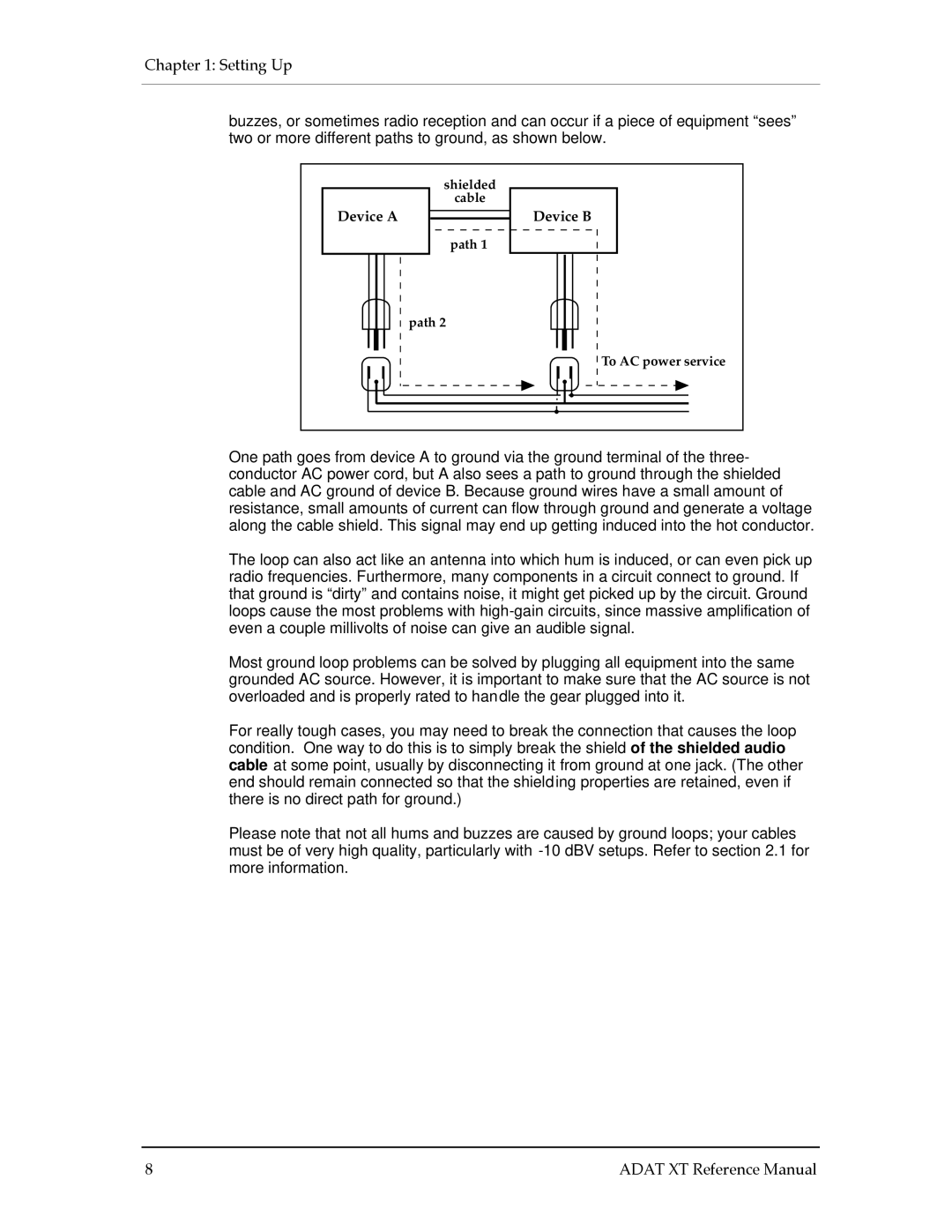
Chapter 1: Setting Up
buzzes, or sometimes radio reception and can occur if a piece of equipment “sees” two or more different paths to ground, as shown below.
Device A
shielded
cable
path 1
Device B
path 2
To AC power service
One path goes from device A to ground via the ground terminal of the three- conductor AC power cord, but A also sees a path to ground through the shielded cable and AC ground of device B. Because ground wires have a small amount of resistance, small amounts of current can flow through ground and generate a voltage along the cable shield. This signal may end up getting induced into the hot conductor.
The loop can also act like an antenna into which hum is induced, or can even pick up radio frequencies. Furthermore, many components in a circuit connect to ground. If that ground is “dirty” and contains noise, it might get picked up by the circuit. Ground loops cause the most problems with
Most ground loop problems can be solved by plugging all equipment into the same grounded AC source. However, it is important to make sure that the AC source is not overloaded and is properly rated to handle the gear plugged into it.
For really tough cases, you may need to break the connection that causes the loop condition. One way to do this is to simply break the shield of the shielded audio cable at some point, usually by disconnecting it from ground at one jack. (The other end should remain connected so that the shielding properties are retained, even if there is no direct path for ground.)
Please note that not all hums and buzzes are caused by ground loops; your cables must be of very high quality, particularly with
8 | ADAT XT Reference Manual |
